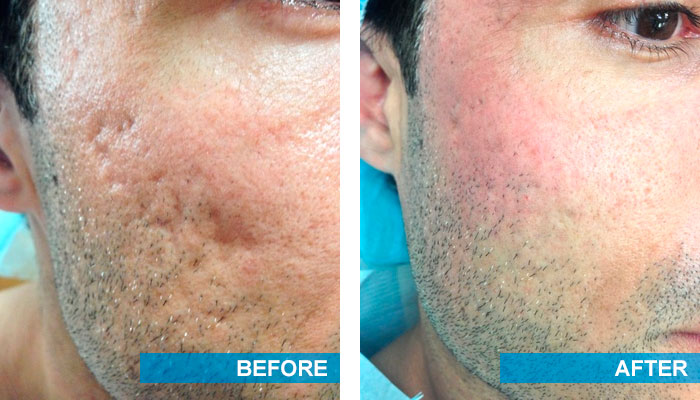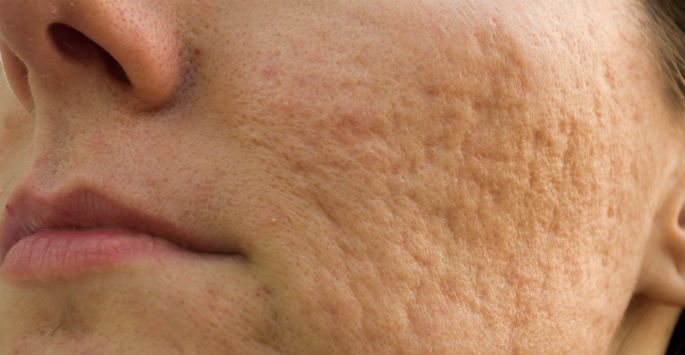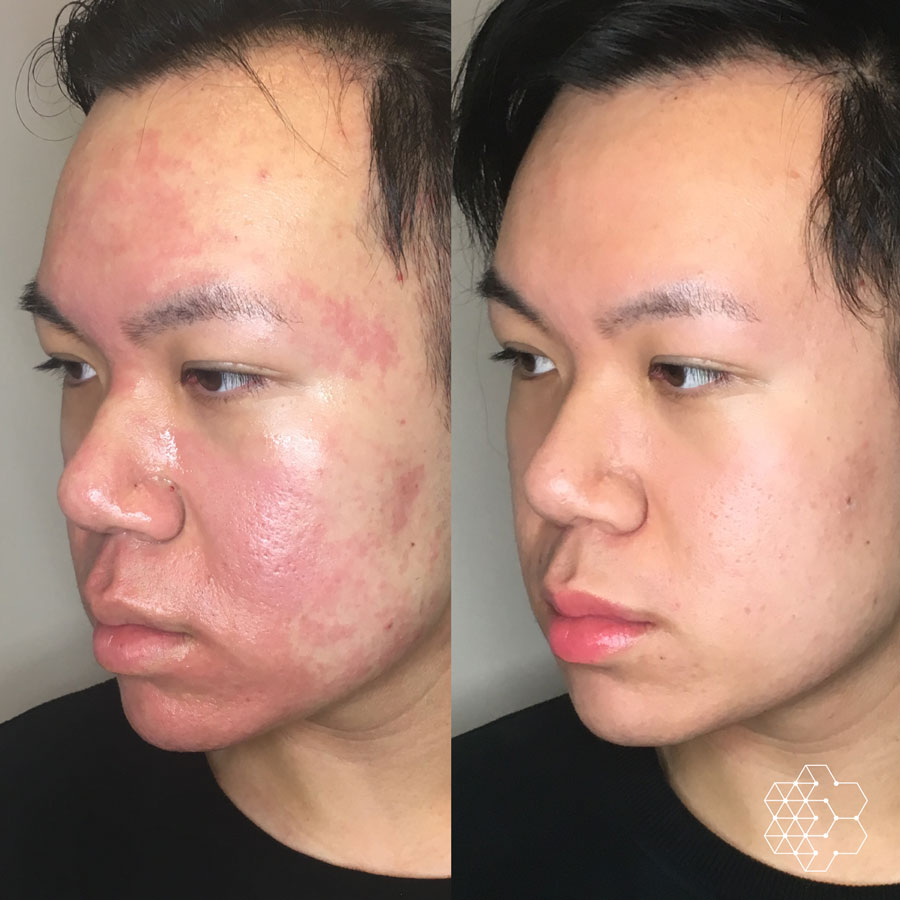Acne and Acne Scars Treatment: Professional Solutions for Lasting Results
Acne and Acne Scars Treatment: Professional Solutions for Lasting Results
Blog Article
Comprehending the Numerous Skin Problem and Reliable Therapy Alternatives for Acne Scars
Acne marks represent an intricate interplay of skin conditions that significantly impact people' self-worth and total skin health. As we discover the landscape of acne scar monitoring, it becomes obvious that the journey towards more clear skin may include more than just topical services.
Kinds Of Acne Scars

On the other hand, hypertrophic marks result from an overproduction of collagen during the recovery process, resulting in increased locations on the skin. These marks are usually firm and can vary in shade, occasionally showing up red or darker than the surrounding skin.
Comprehending these kinds of acne marks is essential for establishing a reliable treatment plan - skin rejuvenation treatments. Options might include chemical peels, laser treatment, microneedling, or facial fillers, tailored to the certain mark type. A complete appointment with a dermatologist can help identify the most proper intervention, taking into account the individual's skin type, mark extent, and general skin health and wellness
Reasons of Acne Scarring
Scarring takes place as an outcome of the body's all-natural healing feedback to swelling and injury created by acne sores. When acne forms, it activates an inflammatory response, bring about the launch of numerous cytokines and development factors that promote healing. This process can sometimes lead to extreme cells formation or insufficient repair, resulting in marks.
The key reasons for acne scarring include the severity of the acne itself, period of the lesions, and private skin kinds. Serious inflammatory acne, such as cysts and blemishes, is extra most likely to cause scarring because of much deeper cells damages. Furthermore, improper handling of acne sores, such as selecting or pressing, can worsen cells injury and swelling, boosting the probability of scarring.
Genetic predisposition likewise plays a considerable function; individuals with a family members history of scarring are at a greater risk. In addition, skin kind and shade can influence scar development, as darker complexion might experience post-inflammatory hyperpigmentation, while lighter skin may develop atrophic scars.
Eventually, comprehending these reasons is vital in managing acne and alleviating the potential for scarring.

Therapy Alternatives for Scarring
Effective treatment alternatives for acne scarring vary depending on the type and intensity of the scars. Normally categorized right into atrophic, hypertrophic, and keloid marks, these conditions require customized techniques for optimal outcomes.
For atrophic marks, which are defined by a loss of cells, therapies such as chemical peels, microdermabrasion, and laser therapy are frequently utilized. These methods promote skin revival and stimulate collagen manufacturing, thereby enhancing skin structure. Subcision, a minimally intrusive treatment, can also be efficient by damaging up coarse bands below the skin.
Hypertrophic and keloid marks can be much more challenging to treat. Alternatives include corticosteroid injections to minimize inflammation and flatten the scars. In many cases, cryotherapy or laser therapy might be advised to reduce their appearance.
Surgical acne scars treatment options are offered for serious scarring, where excision or skin grafting may be needed. It's crucial for individuals to seek advice from with a dermatologist to analyze their certain mark type and go over the most suitable therapy plan. Integrating multiple treatments frequently generates the most effective results, ensuring that each person's unique skin problem is attended to successfully.
Natural Remedy and Natural Solutions
Natural solutions and natural home remedy can supply an easily accessible technique for people seeking to improve the appearance of acne scars (skin rejuvenation treatments). Numerous components discovered in the home cooking area have demonstrated prospective advantages in improving skin appearance and promoting recovery

An additional effective alternative is lemon juice, which acts as an all-natural exfoliant and can lighten hyperpigmentation. It ought to be utilized cautiously, as it might trigger photosensitivity. Oat meal masks are also useful; their gentle peeling can assist eliminate dead skin cells while relaxing irritability.
Important oils, such as tea tree oil and lavender oil, can better sustain scar healing because of their antimicrobial residential properties. It is important to perform a spot test prior to using any type of solution to make sure there are no damaging responses. These natural solutions can be a corresponding approach in the journey to diminish acne scars.
Stopping Future Scarring
Taking on an aggressive approach to skincare can significantly reduce the threat of establishing future acne scars. Regular cleansing, peeling, and hydration can help maintain skin health and wellness and stop clogged pores.
Additionally, avoiding the lure to press or pick acne lesions is vital, as this can bring about inflammation and subsequent scarring. Instead, individuals should concentrate on using topical treatments that advertise healing and decrease swelling. Active ingredients such as salicylic acid, you can try these out benzoyl peroxide, and retinoids are known for their efficiency in taking care of acne and reducing scars.
Sunlight protection is another vital part; direct exposure to UV rays can darken scars and impede recovery. For that reason, making use of a broad-spectrum sun block daily can reduce these impacts - acne scars treatment.
Lastly, maintaining a healthy diet abundant in anti-oxidants and staying hydrated supports skin regrowth. By applying these safety nets, individuals can dramatically reduce their danger of future scarring and promote overall skin health and wellness.
Verdict
In verdict, an extensive understanding of acne marks, incorporating both atrophic and hypertrophic types, is necessary for efficient treatment strategies. Assessment with a skin doctor continues to be important to develop personalized approaches that take into consideration private skin types and scar severity, inevitably boosting the efficiency of scar management techniques.
Acne marks stand for a complex interaction click here to find out more of skin conditions that substantially effect people' self-esteem and general skin wellness. The 2 primary categories of acne scars are hypertrophic and atrophic scars. These scars are additional categorized into 3 subtypes: ice pick scars, which are deep and narrow; boxcar scars, which are wider and have distinct edges; and rolling scars, which develop a wave-like appearance due to unequal skin texture.
A comprehensive appointment with a skin specialist can aid figure out the most ideal intervention, taking right into account the individual's skin kind, mark severity, and overall skin wellness.
Appointment with a skin specialist continues to be essential to devise individualized techniques that think about specific skin kinds and mark extent, ultimately improving the efficiency of mark administration techniques.
Report this page